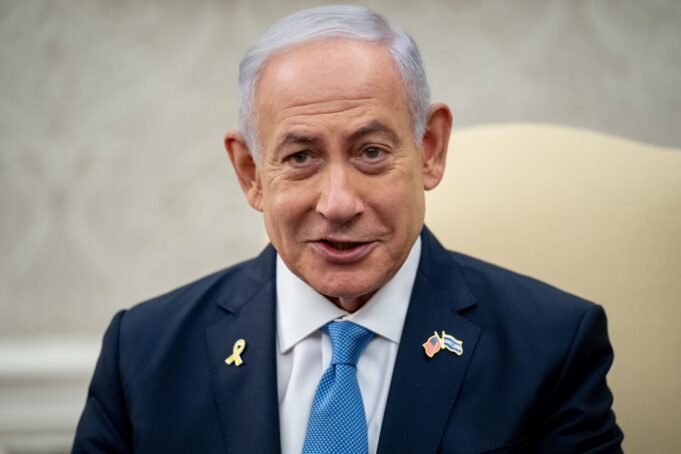Benjamin Netanyahu (born October 21, 1949, Tel Aviv [now Tel Aviv–Yafo], Israel) is an Israeli politician and diplomat who served as his country’s prime minister three times (1996–99, 2009–21, and 2022– ) and is the longest-serving prime minister since Israel’s independence.
Early life and political career
In 1963 Netanyahu, the son of the historian Benzion Netanyahu, moved with his family to Philadelphia in the United States. After enlisting in the Israeli military in 1967, he became a soldier in the elite special operations unit Sayeret Matkal and was on the team that rescued a hijacked jet plane at the Tel Aviv airport in 1972. He later studied at the Massachusetts Institute of Technology (M.B.A., 1976), taking time out to fight in the Yom Kippur War in Israel in 1973. After his brother Jonathan died while leading the successful Entebbe raid in 1976, Benjamin founded the Jonathan Institute, which sponsored conferences on terrorism.
Netanyahu held several ambassadorship positions before being elected to the Knesset (Israeli parliament) as a Likud member in 1988. He served as deputy minister of foreign affairs (1988–91) and then as a deputy minister in Prime Minister Yitzhak Shamir’s coalition cabinet (1991–92). In 1993 he easily won election as the leader of the Likud party, succeeding Shamir in that post. Netanyahu became noted for his opposition to the 1993 Israel-PLO peace accords and the resulting Israeli withdrawals from the West Bank and Gaza Strip.
First term as prime minister (1996–99)
The governing Labour Party entered the 1996 elections with weakened electoral appeal following the assassination of Yitzhak Rabin in November 1995 by a Jewish extremist and a series of suicide bombings by Muslim militants early in 1996. Netanyahu eked out a victory margin of about 1 percent over Prime Minister Shimon Peres in the elections of May 29, 1996, the first in which the prime minister was directly elected. Netanyahu became the youngest person ever to serve as Israel’s prime minister when he formed a government on June 18.
Unrest dominated Netanyahu’s first prime ministership. Soon after he entered office, relations with Syria deteriorated, and his decision in September 1996 to open an ancient tunnel near Al-Aqsa Mosque angered Palestinians and sparked intense fighting. Netanyahu then reversed his earlier opposition to the 1993 peace accords and in 1997 agreed to withdraw troops from most of the West Bank town of Hebron. Pressure from within his coalition, however, led Netanyahu to announce his intention to establish a new Jewish settlement on land claimed by the Palestinians. He also significantly lowered the amount of land that would be handed over to the Palestinians during Israel’s next phase of withdrawal from the West Bank. Violent protests, including a series of bombings, ensued. In 1998 Netanyahu and Palestinian leader Yasser Arafat participated in peace talks that resulted in the Wye Memorandum, the terms of which included placing as much as 40 percent of the West Bank under Palestinian control. The agreement was opposed by right-wing groups in Israel, and several factions in Netanyahu’s government coalition quit. In 1998 the Knesset dissolved the government, and new elections were scheduled for May 1999.
Netanyahu’s reelection campaign was hindered by a fragmented right wing as well as by voters’ growing dislike of his inconsistent peace policies and his often abrasive style. In addition, a series of scandals had plagued his administration, including his appointment in 1997 of Roni Bar-On, a Likud party functionary, as attorney general. Allegations that Bar-On would arrange a plea bargain for a Netanyahu ally who had been charged with fraud and bribery led to a series of confidence votes in the Knesset. With his core political support undermined, Netanyahu was easily defeated by Ehud Barak, leader of the Labour Party, in the 1999 elections.




